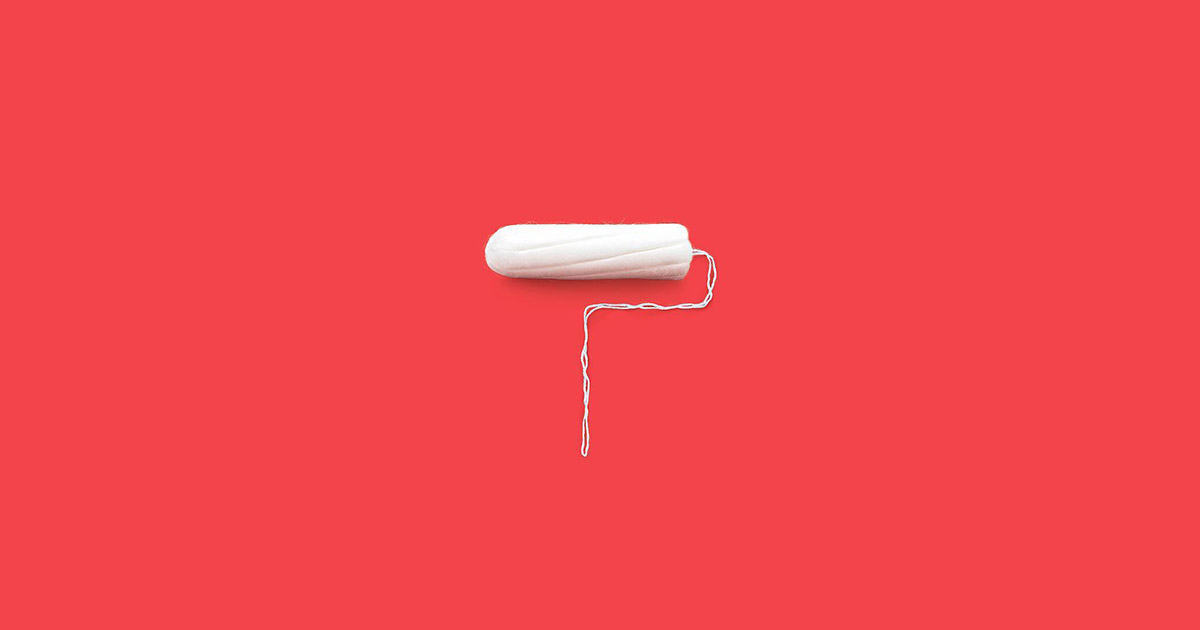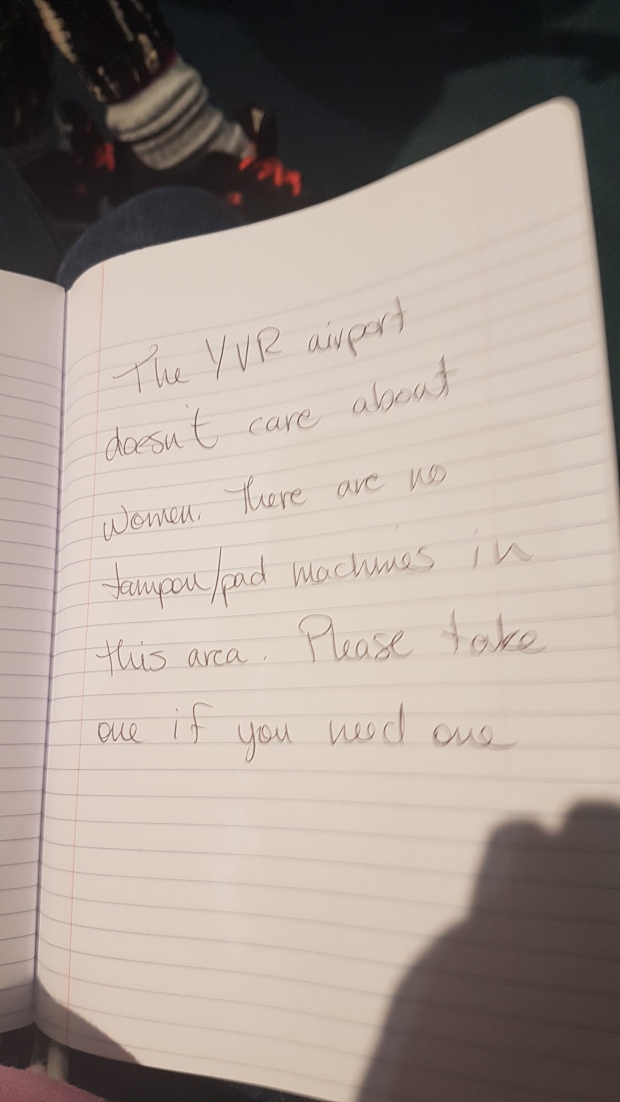Access to menstrual products is a feminist issue- here's why

What do you do when your period shows up unexpectedly? Most of us have to scramble for a pad or tampon, ask a friend or co-worker, or just make do with some toilet paper. But why should we have to stress about finding menstrual products in the first place? Periods are a natural bodily function, just like peeing and pooping. For sanitary reasons, we as a society provide toilet paper and soap in bathrooms. So why don’t we provide menstrual products for the half of society that bleeds?
Even though menstrual products are a necessity for people with periods, they are often hard to find in public spaces. Some gender neutral or women’s public bathrooms offer individual tampons and pads for sale, but these machines are often not stocked properly and do little to help trans or nonbinary folks who cannot access the women’s bathroom. Recently, Canadian airports came under criticism in the news for not providing affordable menstrual products in their bathrooms.
Airports can be especially (and unnecessarily) tricky for finding menstrual products
Kyla Kitzul was travelling through Vancouver International Airport (YVR) in January with her sister Kali, who discovered that her period had started a week early. Kitzul could not find menstrual product dispensers in the bathrooms and was offered disposable underwear when she asked a YVR employee for help. Kitzul then purchased a package of pads for over $15 (sold elsewhere for $3) and left the rest of the package in the bathroom with a note: “The YVR airport doesn’t care about women. There are no tampon/pad machines in this area. Please take one if you need one.” Kitzul said she was inspired to do so after reading a story about Carlee Field leaving a similar note in a bathroom at Calgary International Airport the month before.

Airports can be especially (and unnecessarily) tricky for finding menstrual products. After landing, Kitzul said the first bathroom she encountered had no machine, and no access to stores, as they were about to enter customs. Once in the customs area, Kitzul approached an information desk, where the attendant pointed her to another bathroom, which had a machine with pads and tampons for $1. However, Kitzul noted, “The pad was one of those tiny pantyliners, not one meant for any type of heavy flow. It only lasted my sister through customs and the security check to get into the domestic terminal.”
Kitzul’s sister has Raynaud’s disease, which results in immobilizing cramps and migraines during most of her cycles, and means that she can only use pads. A migraine was setting in for her sister, so Kitzul took charge and approached an information desk in the domestic terminal after finding another bathroom without a menstrual products machine. “At this point, any woman bleeding through her panties, about to board a flight where there’s also worry about bleeding on the seat, would be pretty annoyed,” said Kitzul. The woman at the information desk could only offer Depends (disposable underwear meant for incontinence). Although Kitzul laughed about it with her, she wondered, “They had Depends, but not a Depends machine, and they did have one tampon/pad machine, so why didn't they have refills which they could offer me?”
Menstrual products are often expensive and sometimes difficult to obtain
Kitzul’s experience is unfortunately common. Although the United Nations declared access to menstrual products a basic human right, menstrual products are often expensive and sometimes difficult to obtain. Unlike other necessary items, such as food or medicine, menstrual products are not exempt from US sales taxes. Canada eliminated the “tampon tax” in 2015, but most US states still tax menstrual products (but not certain “men’s products,” like Viagra). Food stamps do not cover menstrual products, and people in prison who menstruate often have little to no access to menstrual products. In many remote northern communities, such as northern Ontario and Saskatchewan, a box of tampons can cost as much as $19 in areas where Indigenous folks are often struggling with unemployment and low incomes. Though not all women menstruate (and some people who menstruate are not women), the high cost of a product needed multiple times a day, every month, for approximately thirty years, puts a strain on the portion of the population that already tends to earn less (whether it is women or trans folks or nonbinary people).
On the bright side, Kitzul’s experience inspired her to put together a fundraiser with friends from the Kinsmen Kinettes in Saskatoon. “They suggested that we throw a Tampon Party to help support women and girls who don’t have adequate access to sanitary supplies,” said Kitzul. “As a middle class white settler Canadian I am well aware that my news attention highlights my privilege and I would like to use that privilege to lift others up.” As for YVR, Kitzul said they offered to clean her clothes and reimburse her for the pads, as well as promising to provide menstrual products for free until the problem is rectified. “I think that affordable supplies should always be available in the washroom of any public place,” said Kitzul. We feel you, girl. Menstrual care is health care, and should be treated as such.
Image Source: Tony Futura